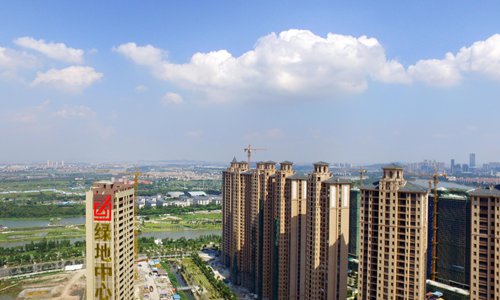China needs to focus on social welfare
By Ding Gang Source:Global Times Published: 2019/6/26 17:33:40

Photo: IC
The US-launched trade war against China has moved to the realm of science, technology, finance, and many other industries. The Trump administration's intention to decouple from China has been increasingly obvious.
As a rising industrial power, China has already occupied vital parts of the global industrial chain. The tendency of the US, the world's largest consumer market, to decouple from China will certainly have a massive impact on China's development.
Many Chinese scholars believe that the key to China's resistance to the US decoupling lies in further reform and opening-up. Through reform and opening-up, China will be able to inject vitality in its market, innovate better, and develop closer relations with the rest of the world.
China is on the right path. But to move in this direction, it must focus on its social welfare system.
Japan's economy was hurt by US crackdown in the mid-1980s. Whether or not the "lost decade" was caused by the Plaza Accord in 1985, the Japanese economy took a bad beating.
In this historical context, Japan's economic development slowed down sharply. But no large-scale or continued social unrest was seen. Nevertheless, social instability caused by economic downturn is commonplace in many developing countries.
The social welfare system that Japan built since the 1960s helped keep social unrest at bay. The system not only stabilized Japanese society, but also helped companies prosper, enabling them to become world leaders in product development and innovation.
At the beginning of the "lost decade," Japan adopted a new economic five-year plan from 1988 to 1992, and began to build an affluent living environment. The country also optimized its distribution system to make it fair, and completed the shift to a domestic demand-driven economy. In the 1980s, Japan's social security investment doubled, reaching nearly 70 trillion yen from only 30 trillion.
The industrial giant's competitiveness during this period stemmed not only from scaled-up investment in enterprises and training manpower, but also from the country's stable business and social structure, all of which are inseparable from Japan's social welfare system.
The current rivalry between China and the US is typical of intense competition among major powers. It is competition over silicon chips, talent and even different political and social systems. The spat between the economic giants shows how different their systems are.
In his article "Forget China - it's America's own economic system that's broken," published in The Guardian on June 23, former US secretary of labor Robert Reich noted that "The two systems are fundamentally different. At the core of the American system are 500 giant companies headquartered in the US but making, buying and selling things all over the world… At the core of China's economy, by contrast, are state-owned companies that borrow from state banks at artificially low rates. These state firms balance the ups and downs of the economy, spending more when private companies are reluctant to do so." He also said "The simple fact is Americans cannot thrive within a system run largely by big American corporations, organized to boost their share prices but not boost Americans."
The piece articulated the key to China-US competition - which system can better promote the general well-being of its people.
In recent years, the Chinese government has been committed to improving the social security system, employment training system, and urban and rural living environment. The poverty alleviation program across the country has turned out to be fruitful, which demonstrates China's institutional efficiency.
Lifting more people out of poverty and making sure they have at least minimum social security benefits, can afford to see a doctor, do not need to spend too much of their savings on their children's education, and have an apartment to live… may seem not as important as developing high-tech products such as silicone chips. But these factors can precisely determine the longevity of a country's economic and scientific strength as well as its resilience in the face of external shocks.
The author is a senior editor with People's Daily, and currently a senior fellow with the Chongyang Institute for Financial Studies at Renmin University of China. dinggang@globaltimes.com.cn. Follow him on Twitter @dinggangchina
RELATED ARTICLES:
Posted in: CHINA-US